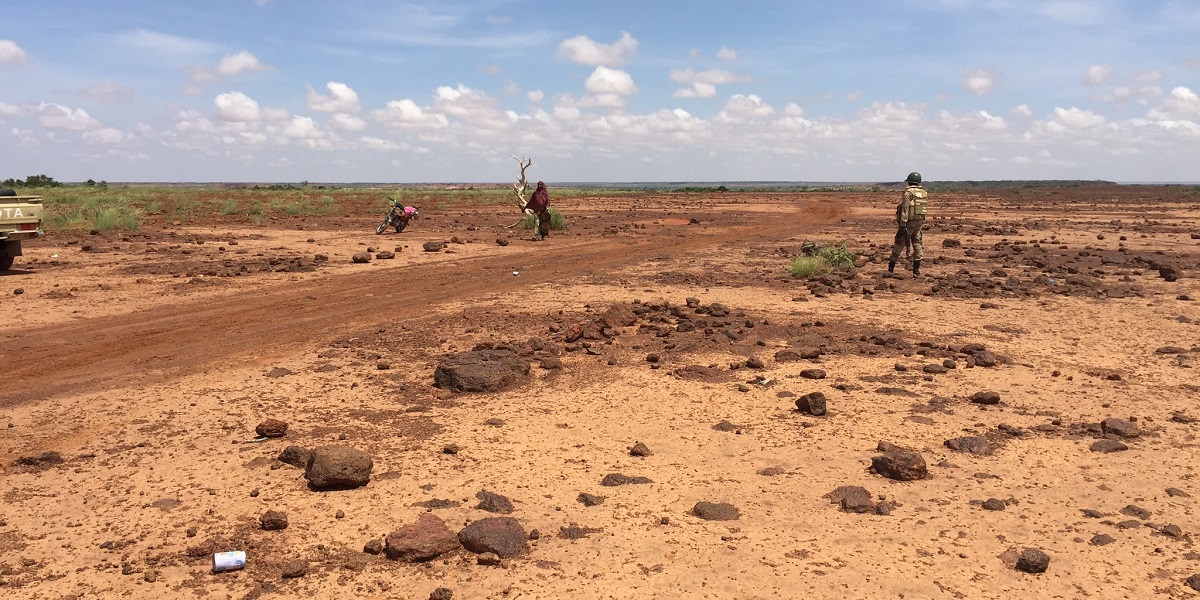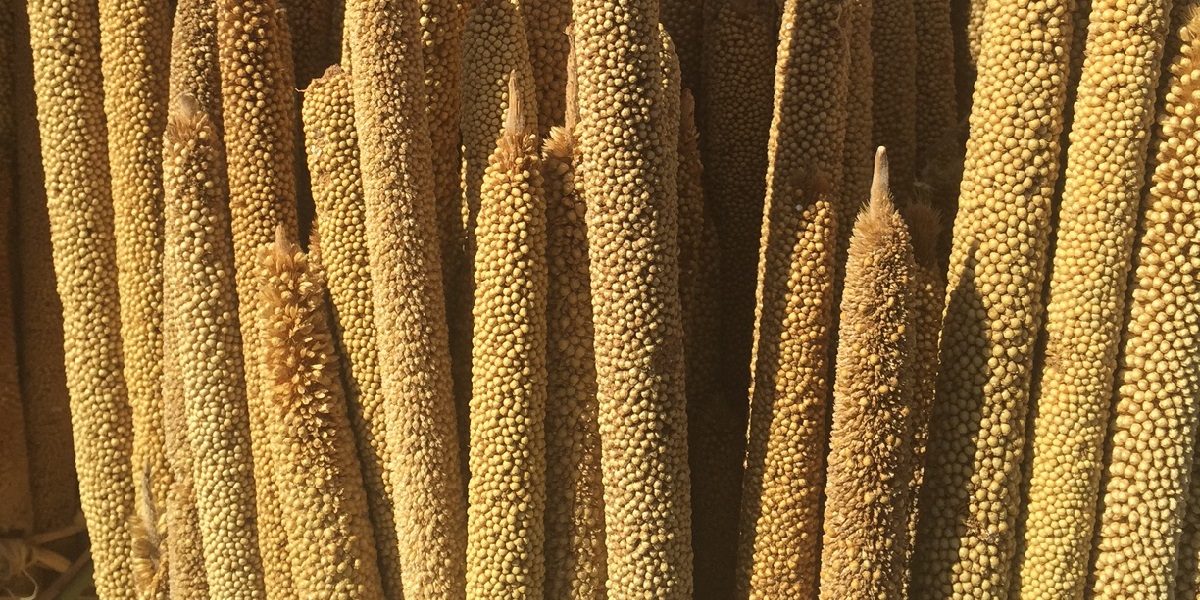Food crises are all too common in Niger, a land-locked country, two-thirds of which is Sahara desert. Since 2001, Niger has witnessed four years of severe food insecurity caused by drought that led the Government of Niger to request international humanitarian assistance. Due to frequent droughts and floods that decimate crops and productive assets, many Nigeriens struggle to survive, let alone increase their household incomes.
The 2007–2008 global food crisis was a wake-up call — an opportunity to revitalize global agricultural production and trade. This was certainly the case in Niger, where the agricultural sector employs more than 80 percent of the population and represents the second-largest export sector in the country.

Kristin Penn/MCC
Overgrazing and deforestation have led to land degradation in Niger’s Tillaberi Region. To support vegetation growth and re-greening of the landscape, community members are creating small water catchments to retain rainwater. MCC’s compact with Niger will help collect data to inform and support the country’s re-greening efforts.
One of the barriers to smart development of a more resilient agricultural sector in Niger has been a lack of reliable and comprehensive data to inform policies and public spending. There just isn’t the budget for quality data collection. For the great majority of agricultural plots in Niger, basic data on crop production and yield is sparse. And if such data is available, it tends to cover only a limited number of crops, and its quality and reliability are low. With access to reliable data, Nigerien farmers can make informed decisions on what to produce, when and where to sell, and at what price. More information on market demand and price trends means lower risks and the potential for greater profits.
MCC and the Government of Niger recently signed a $437 million compact focused on strengthening Niger’s agricultural sector by improving water availability, infrastructure, and market access. During pre-compact negotiations, MCC was particularly excited by the Nigerien Government’s enthusiastic request to invest in its statistical capacity to improve evidence-based planning and monitoring of key indicators. As a result, the Niger Compact includes a very important investment that will bolster the country’s statistical capacity — the compact will help provide a framework for Niger’s national statistical system to generate and apply the basic data needed to guide decision-making. It will also focus on the development of statistical capacity at the National Institute of Statistics and key ministries, including the Ministries of Planning, Water and Sanitation, Agriculture and Livestock, and Environment.
There are four main aspects to this work.
- First, developing relevant, timely, accurate and productive sector data, including data disaggregated by income level, gender and age.
- Second, analyzing and informing priorities, design and projections of government policy related to growth strategies, investment, agricultural trade, and natural resources and services.
- Third, measuring economic growth and poverty reduction.
- And finally, developing the Nigerien Government’s monitoring and evaluation capacity.
The Niger Compact will, as a first step, develop a master plan to improve the capacity to collect, analyze, and report high-quality data on household incomes, the performance of farmers and the agricultural sector overall, the nutritional status of households, and the sustainability of natural resources. This master plan will not only guide investments in Niger’s statistical capacity made by the Nigerien Government, MCC and other donors, it will also have a far-reaching impact, allowing Niger to better use data to achieve and measure progress toward global initiatives like the Sustainable Development Goals (SDGs). In particular, MCC’s investment will better position Niger to track its contributions to achieving Sustainable Development Goal #2: “End hunger, achieve food security and improved nutrition, and promote sustainable agriculture.”

Kristin Penn/MCC
A farm on the outskirts of Niger’s capital, Niamey, grows millet — an important staple crop. The Niger Compact will help improve the Government of Niger’s capacity to collect, analyze, and report high-quality data on things like staple crop production to support improved agricultural performance and enhance food security.
As part of the 71st session of the United Nations General Assembly in New York City — with a theme of The Sustainable Development Goals: A Universal Push to Transform Our World — MCC will join with partners to co-host an event on September 22 to celebrate the recently signed Niger Compact and discuss the importance of food security and the continued need for inclusive growth. The celebration will include a conversation between Nigerien President Mahamadou Issoufou and MCC CEO Dana J. Hyde.
Timely and accurate agricultural statistics are critical in order to analyze the impacts of government policy, the efficient functioning of agricultural markets, food security, and economic growth. They enable agricultural producers and agribusinesses to make informed decisions on marketing, pricing, farm inputs, and financial needs. We look forward to working with our Nigerien partners in the years ahead to strengthen the Government’s capacity to gather quality, reliable data and analyze the country’s agricultural sector to benefit producers and consumers for years to come.

